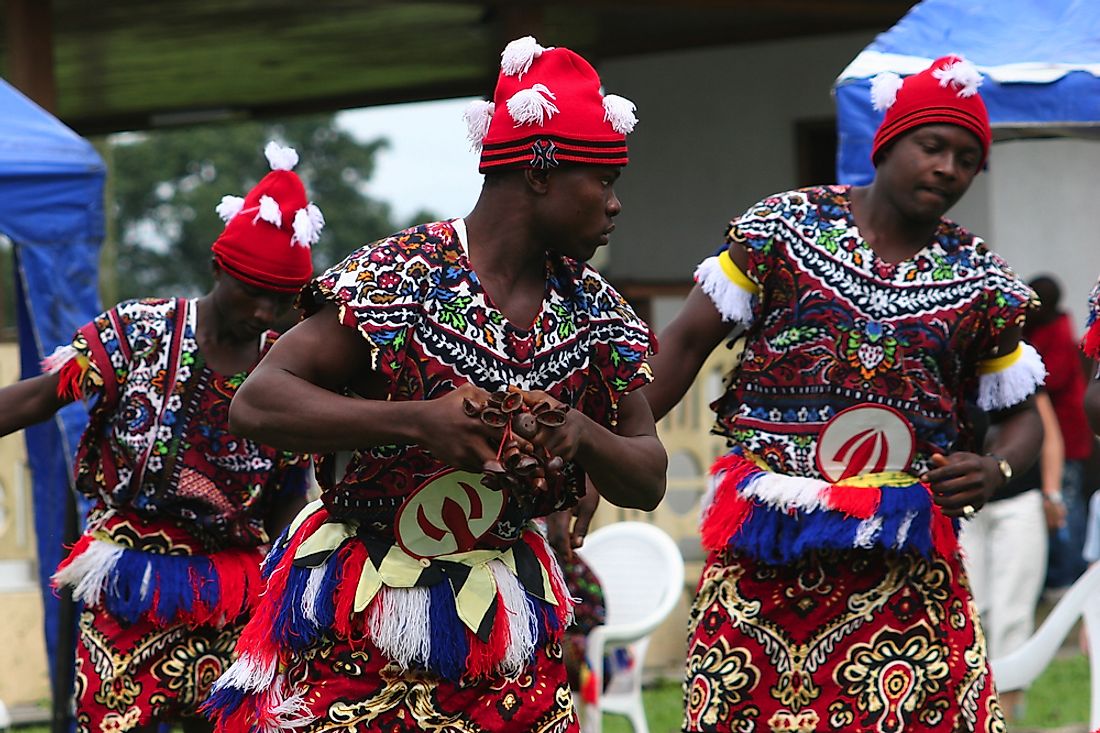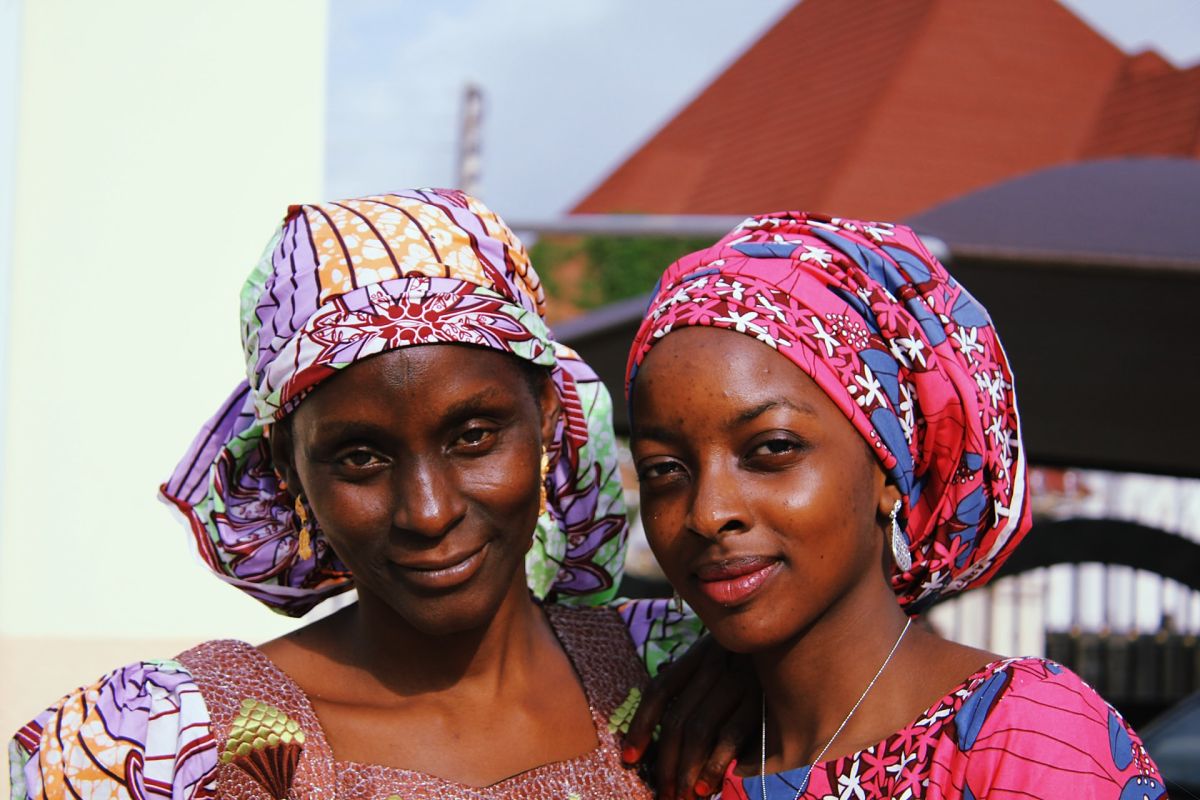Have you ever wondered about the spirit of a nigerian person, a vibrant thread in the rich fabric of Africa? It's a fascinating journey, really, to get to know the people from this amazing country. Nigeria, you see, holds a very special place on the world stage, quite simply because of its people and their incredible stories.
This land, positioned right there on the Atlantic coast in Western Africa, is home to a truly diverse landscape. From its northern borders near Niger and Chad, all the way down to its southern coasts, you find a range of climates and natural beauty. It's a place where history runs deep, shaping the very essence of what it means to be someone from this nation.
Understanding a nigerian person means looking at a country that, in a way, gained its modern shape back in 1914. That's when the British protectorates of Northern and Southern Nigeria were joined together. This union eventually led to independence on October 1, 1960, and then in 1963, the country moved into a new phase. It's a journey of growth and self-discovery that continues to this day, and it’s a story truly worth exploring.
Table of Contents
- The Roots of a Nation: A Look at Nigeria's Beginning
- A Land of Many Faces: Geography and Climate
- The People of Nigeria: A Collective Identity
- Cultural Tapestry: Pride in Heritage
- A Voice for Freedom: Standing Against Dictatorship
- Nigeria's Global Impact: Film and Beyond
- Recent Happenings: A Community's Farewell
- Frequently Asked Questions About a Nigerian Person
- A Call to Explore More
The Roots of a Nation: A Look at Nigeria's Beginning
The story of modern Nigeria, you know, has a pretty clear starting point. It's almost as if a new chapter began in 1914. That was the year when, basically, two separate British areas, the northern and southern protectorates, were brought together. This joining, you could say, laid the groundwork for the country we know today, a very significant moment in its past.
Then, the country took a massive step forward, a truly memorable one. On October 1, 1960, Nigeria became independent. This was a moment of immense celebration and, in a way, a fresh start for the people. Just a few years later, in 1963, the nation continued to evolve, shaping its own destiny. These dates aren't just numbers; they represent the unfolding of a proud history, a rather important series of events for every nigerian person.
The very name "Nigeria" itself, is that not interesting? It comes from the Niger River, a huge waterway that actually flows right through the country. This river, in some respects, has been a lifeblood for generations, connecting different parts of the land and playing a vital role in its development. So, when you think about the name, you're really thinking about a core natural feature that defines the place and its people.
A Land of Many Faces: Geography and Climate
Nigeria, it's worth noting, is located on the Atlantic coast in Western Africa. Its position gives it a pretty interesting mix of surroundings. To the north, you find it shares borders with Niger, and then to the northeast, it meets Chad. These connections mean that the country is, in a way, part of a larger regional story, influencing and being influenced by its neighbors.
What's quite striking about this country is its very diverse geography. You might think of one type of landscape, but actually, it offers a wide range. From the coastal areas to the drier northern regions, the land changes quite a bit. This diversity in land forms also means a variety of climates, so you can experience different weather patterns depending on where you are within the country. It's a place that, truly, has a bit of everything.
This varied environment, you know, has surely shaped the lives and cultures of the people living there. Different regions would have developed different ways of life, different traditions, and even different types of food, simply because of what the land provides. So, the geography isn't just a backdrop; it's a very active part of the story of every nigerian person.
The People of Nigeria: A Collective Identity
When we talk about Nigerians, or the nigerian person, we're really talking about the citizens of Nigeria. But it's also about people who have ancestry from Nigeria, even if they live elsewhere. It's a broad term that encompasses a vast number of individuals, all connected by this shared national heritage. This sense of belonging is a powerful thing, creating a collective identity.
It's often said that Nigeria is the most populous black nation on earth. This fact alone gives the country a unique standing and a significant voice globally. The sheer number of people means there's a tremendous amount of human energy, talent, and creativity flowing within its borders. This population size, you could say, is a defining characteristic, making it a powerhouse of human potential.
To experience the heartbeat of Africa, you really just need to look at Nigeria. It's a place where life moves with a distinct rhythm, full of energy and passion. Discovering what makes the country so wonderful often comes down to its people – their resilience, their joy, and their vibrant way of life. It's a feeling, a spirit, that's almost palpable when you learn about a nigerian person.
Cultural Tapestry: Pride in Heritage
One thing that stands out about a nigerian person is their deep pride in their unique cultural heritage. Nigeria is made up of many different ethnic groups, and each one has its own distinct traditions, languages, and customs. This isn't just a collection of differences; it's a rich blend, a beautiful mosaic of cultures that makes the nation incredibly vibrant.
This pride isn't just about preserving old ways; it's about celebrating who they are. Whether it's through music, dance, food, or traditional attire, you can see this strong connection to their roots. It’s a very personal thing, this sense of belonging to a particular group, and it adds so much depth to the overall national identity. This cultural richness is, frankly, one of Nigeria's greatest treasures.
Imagine, if you will, the sheer variety of stories and experiences that come from such a diverse population. Each ethnic group contributes its own thread to the larger story of Nigeria, making it a truly fascinating place to explore. This deep appreciation for individual heritage, it's clear, strengthens the collective spirit of the nation and its people.
A Voice for Freedom: Standing Against Dictatorship
It's a really important point that Nigerians, as a people, stand firmly against dictatorship. This isn't something that depends on someone's ethnic background; it's a shared belief across the board. There's a strong desire for freedom and for a government that truly represents the will of the people. This opposition to oppressive rule is, basically, a core value.
This collective stance shows a deep commitment to democratic principles and human rights. It means that, regardless of where someone comes from within Nigeria, they share a common understanding that power should be held responsibly and accountably. This unity in principle is a very powerful force, shaping the country's political landscape and its ongoing journey towards greater openness.
The history of Nigeria, if you look at it, includes moments where this opposition has been very evident. People have, in a way, consistently pushed for a society where everyone has a voice and where fairness prevails. This unwavering spirit against tyranny is a defining characteristic of a nigerian person, a testament to their desire for a just society.
Nigeria's Global Impact: Film and Beyond
Did you know that Nigeria is home to the second largest film industry on the planet? It's true, and it's a truly remarkable achievement. This industry, often called Nollywood, produces an incredible number of movies, telling stories that resonate not just within Nigeria but across Africa and beyond. It's a powerhouse of creativity, showcasing Nigerian talent to the world.
This massive film output isn't just about entertainment; it's also a powerful way for the nigerian person to share their culture, their perspectives, and their narratives. These films often explore social issues, family dynamics, and the daily lives of Nigerians, giving viewers a genuine glimpse into the country's heartbeat. It's a cultural export that has gained significant global recognition, truly putting Nigeria on the map in a unique way.
Beyond film, Nigeria's influence extends into various other fields, from music to literature and entrepreneurship. The energy and drive of its people are evident in many sectors, contributing to innovation and progress. This widespread impact shows that the spirit of a nigerian person is not confined by borders, but rather reaches out and touches lives globally.
Recent Happenings: A Community's Farewell
Just recently, there was a very significant event that showed the deep respect and community spirit in Nigeria. Former Nigerian president Muhammadu Buhari was laid to rest, just this past Tuesday, in his northern hometown. It was a moment that truly brought people together, showing a collective sense of remembrance.
Thousands of people, you know, lined the streets to say goodbye. This kind of public outpouring of emotion, this gathering of so many individuals, really highlights the strong community bonds that exist. It's a demonstration of how a nigerian person connects with their leaders and with each other, even in moments of sadness. It was, in a way, a very public display of national mourning and respect.
The scene, with so many people coming out, paints a clear picture of the collective spirit and the shared experiences that bind Nigerians together. It's these moments, large and small, that truly reveal the character of the people and the fabric of the nation. This event, in particular, was a powerful reminder of the deep connections that run through Nigerian society.
Frequently Asked Questions About a Nigerian Person
People often have questions about Nigeria and its people. Here are a few common ones:
What is the history of Nigeria's independence?
Nigeria became independent on October 1, 1960. This was a really big step, allowing the country to manage its own affairs. Then, in 1963, it moved into a new phase of self-governance. The journey from being a British protectorate, which started when Northern and Southern Nigeria were joined in 1914, to becoming a free nation was, in a way, a long and important one for every nigerian person.
Where is Nigeria located in Africa?
Nigeria is located on the Atlantic coast in Western Africa. It shares borders with Niger to its north and Chad to its northeast. The country has a pretty diverse geography, with different climates depending on the region. So, it's right there, a prominent nation in the western part of the continent, with a varied landscape.
What does "Nigerians or the Nigerian people" mean?
When we talk about "Nigerians" or the "Nigerian people," we're referring to the citizens of Nigeria. It also includes people who have ancestry from Nigeria, regardless of where they currently live. This term basically covers everyone connected to this vibrant nation, whether by birth or by heritage. It's a way to describe the collective group of people who call Nigeria their home or their origin.
A Call to Explore More
Understanding a nigerian person means appreciating a rich history, a diverse land, and a people full of pride and resilience. From the origins of its name, derived from the Niger River, to its significant role as the most populous black nation on Earth, Nigeria offers so much to learn. The stories of its past, the vibrancy of its culture, and the spirit of its people truly make it the heartbeat of Africa.



